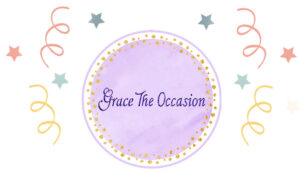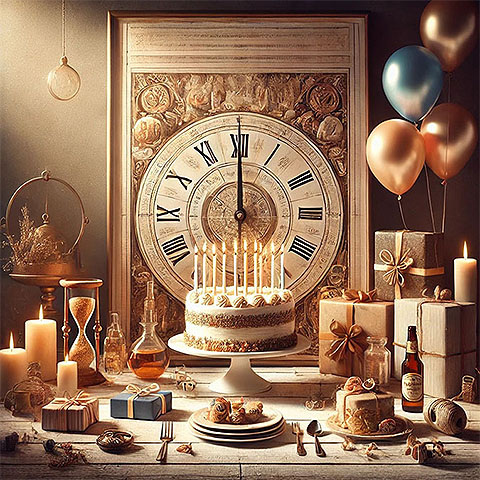The history of birthdays is a journey through time
Birthday: A day to be celebrated, cherished, and sprinkled with a bit of magic. Let’s take a short whimsical stroll through the ages and explore how these joyous occasions came to be, why we indulge in delightful cakes, light shimmering candles and shower each other with heartfelt gifts and cards.
The origin of birthday celebrations
Birthday traditions, like a beautifully woven tapestry, differ across cultures, but they all share one common thread – the celebration of life. In the UK, birthday traditions are from a blend of cultures from various corners of the world.
It all began with the ancient Egyptians, who believed that on their coronation day, Pharaohs were transformed into Gods and they were therefore considered to be reborn. This event was the earliest record of birthday celebrations, setting the stage for a tradition that would transcend time and culture.
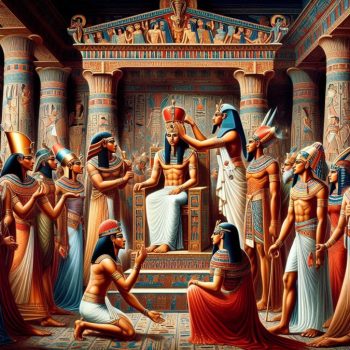
Birthday cakes: A sweet legacy
Ah, the birthday cake – a sweet symbol of celebration! The tradition of birthday cake has ancient origins, with influences from several cultures. This tradition has been passed down through centuries, evolving with each era.
One of the earliest connections to birthday cakes comes from the ancient Greeks, who made offerings of moon shaped honey cakes in tribute to the Goddess Artemis. Artemis was the Goddess of the Moon, Archery, Hunting, Forests and Hills.
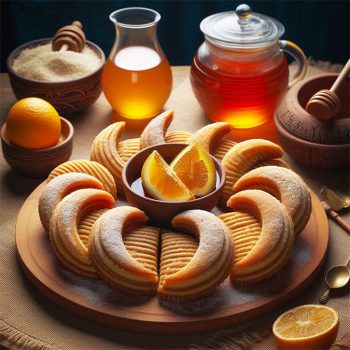
In the 17th century birthday cakes became more elaborate with icing and decorations. However, due to the high prices of the ingredients the birthday cake tradition wasn’t as widespread as it could have been. Most people couldn’t afford the ingredients to make sweet good-looking cakes. It was not until the Industrial Revolution in the 18th century that ingredients became more accessible to the less wealthy.
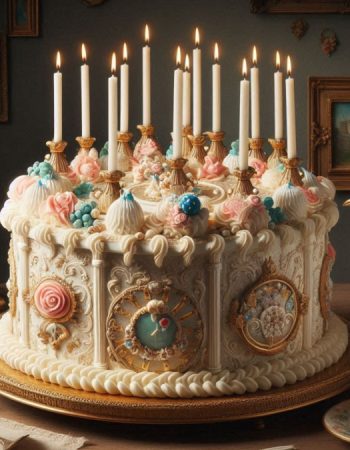
In the 18th century, German bakers were responsible for the invention of the more modern birthday cake. They began celebrating children’s birthdays with cakes, calling it “Kinderfest” (Children’s Celebrations). The cakes were sweeter and more recognizable as modern birthday cakes.
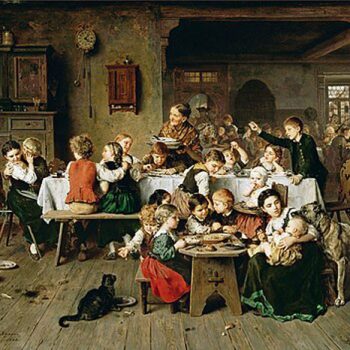
The glow of birthday candles
The tradition of placing candles on birthday cakes also hails from ancient Greece. In their offerings of moon shaped honey cakes to the Goddess Artemis, candles were put on the cakes. The candles were then lit in order to recreate the radiance and glowing effect of the moon and the Goddess’s perceived beauty. Some believe this is where the practice of placing candles on cakes originated.
In the 18th century German kinderfeste (children’s celebrations), the German bakers put candles on the children’s cakes. There was one candle for each year of life, along with one more in the hope of celebrating at least one more year.

Nowadays a silent wish may be made before blowing out the candles on the cake. It is believed that the wish must not be told, or it will not come true.

The melody of “Happy Birthday to You”
In the late 1800s two Kentucky schoolteachers, Patty and Mildred Hill wrote a song called “Good Morning To All”. It started as a song for school kids which was sung in classrooms before classes began. However, over time the song became adapted, the words were changed and it eventually morphed into the universal “Happy Birthday To You” anthem we all sing today.
The tradition of birthday presents
Once upon a time, it was believed that newborns were vulnerable to evil spirits that wanted to harm and haunt the infant. To protect them, people would gather and bring gifts to ensure the child’s prosperity and safety over the coming year. The gifts included things like food, clothes and money. While the ancient fears have faded, the tradition of giving gifts has flourished, becoming a cherished part of our celebrations.
The sentiment behind birthday cards
Birthday cards hold a special place in our hearts as tokens of love and appreciation. A card is the chance for the giver to express their feelings and sentiments to the recipient.
The tradition of sending birthday cards in England dates back to the early 19th century. There are no records to pinpoint the exact date of who sent or received the very first birthday card. However, it is believed that the first known example of a birthday card was sent in 1843 by Sir Henry Cole, who also played a pivotal role in the creation of the first commercial Christmas card.
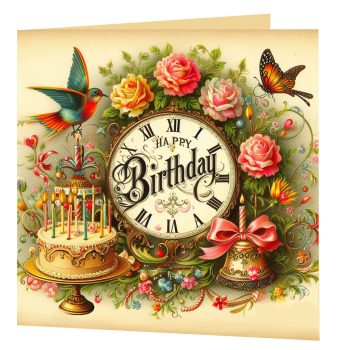
Although we don’t know who sent the first one, it’s believed that this tradition started in England. Originally, cards were sent by those who were not able to see someone on their birthday, serving as an apology rather than just a greeting. Today, they are a heartfelt way to wish someone a wonderful birthday, filled with joy and love.
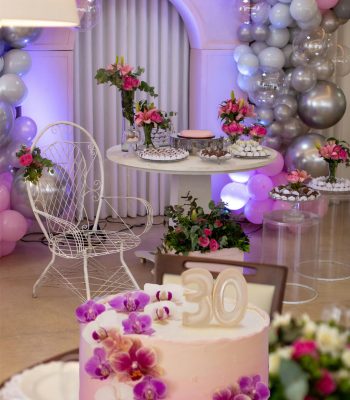
As we celebrate our modern birthdays, we carry forward these timeless traditions, each one adding a sprinkle of history and a dash of enchantment to our special day. So, here’s to the magic of birthdays – may your celebrations be as delightful and unique as you are!
